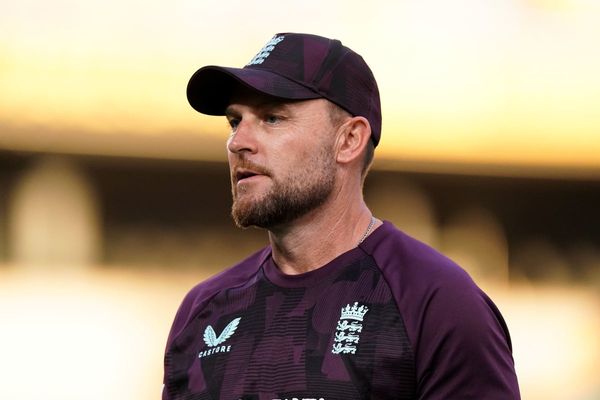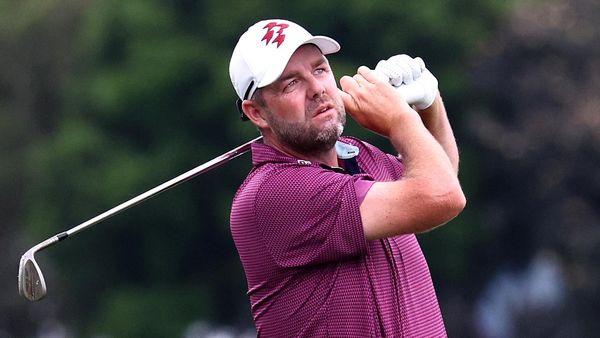
Brussels, Belgium – Fighting for justice and women’s rights in Poland has become an integral part of Barbara Skrobol’s life since September 22, 2021.
This was the day her sister-in-law, Izabela Sajbor, died of sepsis at a hospital in southern Poland after doctors refused to terminate her pregnancy after finding foetal defects, due to Poland’s stringent abortion rules.
“Iza was like a sister to me. She was always full of life and was also a role model to her nine-year-old daughter Maja. Her death shook our family,” Skrobol told Al Jazeera.
“When she got pregnant again, the news made all of us very happy. But 22 weeks into her pregnancy, Poland’s new abortion law dictated the course of her life,” she added.
Poland has some of the strictest abortion laws in Europe. In October 2020, the country’s Constitutional Tribunal ruled that abortion due to foetal defects was unconstitutional.
The court added that pregnancies could be terminated only in cases of rape, incest or if the mother’s life is in danger. This legislation was ratified by the Polish government in January 2021.
Izabela Sajbor became one of the first known victims of this de facto abortion ban and Skrobol has been lobbying hard for justice. She is also keen to ensure that no other woman endures a similar experience as her sister-in-law.

Speaking at a public hearing on Poland’s abortion law at the European Parliament in Brussels on November 17, Skrobol described Izabela’s last moments at the hospital in Pszczyna.
“We were not let to visit her but received text messages from her saying the doctors were waiting for her fetus’s heartbeat to stop,” Skrobol said, adding that the doctors were following Poland’s abortion law of not terminating a pregnancy due to foetal issues.
“Iza knew her life was in danger but was keen to live for her family. Just hours before she died, her last text message said: ‘Women are being treated as incubators’,” Skrobol said.
She summoned the European Union to take a tougher stance on the matter so that stringent laws do not continue shaping women’s lives in Poland.
Widespread protests
Izabela’s death sparked widespread protests in Poland with women condemning the abortion law. Since her death, many have also become apprehensive about becoming pregnant.
According to an October 2022 report by the Polish newspaper Dziennik Gazeta, 52 percent of Poles believe the new abortion rules have made them less keen to have children. This is a 45 percent rise from last year.
Kamila Ferenc, lawyer at the Warsaw-based Foundation for Women and Family Planning (FEDERA), told Al Jazeera that since Poland’s restrictive family planning act was introduced in 1993, women have not been guaranteed their reproductive rights.
“The strong position of the Catholic Church has stigmatised abortion and our conservative government ratifying the October 2020 abortion legislation has made it very hard for many women. Even accessing contraceptives is hard,” Ferenc told Al Jazeera.
She highlighted that since the October 2020 legislation came into force, more than 70,000 Polish women have been affected and six women have died the same way as Izabela, as doctors refused to terminate their pregnancies.
“The case is against the doctors as well, because by not providing medical services when needed, they are neglecting the patient’s life,” Ferenc said.
While she is aware that some doctors are not carrying out abortions when needed due to fear of getting caught by government authorities, her organisation is trying to cooperate with them and help them.
“We organise workshops for them and try to change their attitude by making them aware of how brutal the government’s rules are, and how they as doctors should prioritise saving a person’s life over following a discriminatory law out of fear,” Ferenc said.
EU’s stance
The European Commissioner for Equality, Helena Dalli, has criticised the Polish abortion law.
The European Parliament adopted a resolution in November 2021, calling on Warsaw to lift the de facto ban that threatens women’s lives.
At a hearing in the European Parliament in Brussels this week, Polish politician Robert Biedron, who is also the chair of the European Parliament’s Women’s Rights and Gender Equality Committee, reported on a recent visit to Poland.
“We met many women, NGOs supporting pregnant women in need, government leaders and opposition party members. Under the current situation, access to legal abortion is still very limited,” he told reporters at a news conference at the European Parliament in Brussels.
“It is important for the EU to call on Poland to lift this ban and also ensure that every EU nation gives women the right to undergo abortions. This should be a part of the bloc’s strategy on health and reproductive rights,” Biedron added.
Ukrainian refugees
Biedron also pointed out that the European Parliament’s delegation met several Ukrainian refugee women in Poland, who are also subject to the abortion ban.
Since Russia’s full-scale invasion of Ukraine in February 2022, millions of Ukrainians have fled to neighbouring Poland and other EU nations.
Poland’s strict abortion rules have come as a brutal surprise to Ukrainian women, according to Ferenc.
“These women were used to a more liberal abortion legislation in Ukraine, and now, they are surprised that in Poland, which on one hand is giving them shelter, is not letting them exercise their fundamental reproductive rights on the other hand,” Ferenc told Al Jazeera, adding that they have not protested against the law but are instead “suffering in silence”.
Another challenge for Ukrainian women is how Polish law deals with abortion after rape. While abortion is allowed, women have to be able to prove they have been raped.
“This is already difficult for Polish women and will be even harder for Ukrainian women. But we at FEDERA help them get a certificate from a prosecutor,” Urszula Grycuk, the organisation’s coordinator for international advocacy, told Al Jazeera.
To support Ukrainian women further, Biedron told Al Jazeera that the EU should consider including a clause to let them seek abortion services freely in every EU country as a part of the bloc’s temporary protection directive, which gives Ukrainians the right to live and avail medical care, work opportunities and education till 2024 in the EU.
‘Let women protest’
Caroline Hickson, regional director of the International Planned Parenthood Federation European Network, highlighted the importance of protecting women’s rights to protest as the global battle to have abortion bans lifted magnifies with women protesting not only Poland’s laws but also more recently, the US’s abortion laws.
“Many women like Marta Lempart, who are leading the Polish women’s strike, have been slapped with charges for protesting the government’s laws. The right to peacefully protest needs to be protected in the EU because it can make a difference as it has in countries like Ireland,” she said at the European Parliament hearing.
“If it is not protected, more women will die and we will be here at a hearing again in 10 years,” she added.
Skrobol shared a similar view.
“Izabela’s daughter Maja takes her school artwork and a teddy bear and goes to visit her mother’s grave every single day,” she said.
“Let us not take away wives from their husbands and mothers from their children and continue fighting for our rights,” Skrobol added.







